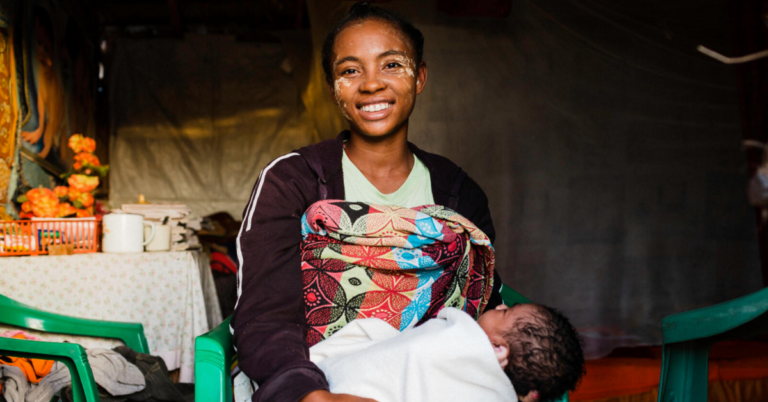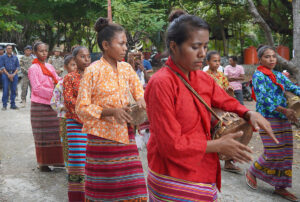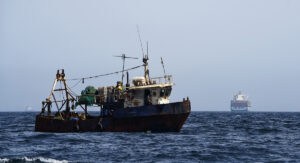In a move set to bolster integrated health and conservation programming across the coastal tropics, Blue Ventures and MSI Reproductive Choices are expanding their long-standing partnership with an ambitious new commitment to strengthen climate resilience in coastal communities across Sub-Saharan Africa.
The commitment, which prioritises the needs of women and girls living on the frontline of the climate crisis, is announced today at a spotlight session – Defending Sexual and Reproductive Rights in the Face of Climate Change – at the Clinton Global Initiative 2024 Annual Meeting. The NGOs pledged to raise US$15m to reach 1.5 million people in vulnerable coastal communities in Kenya, Tanzania, and Senegal.
To fulfil the commitment, Blue Ventures and MSI will draw on successes and lessons learned from their work in protected and coastal areas of Madagascar, which represents one of the longest running health and environment partnerships in the world, enabling communities to better respond to climate-related shocks and stressors.
Women and girls often face higher risks and greater burdens from the impacts of climate change in low-income-countries due to existing roles, responsibilities and cultural norms.
Globally, MSI projects that 14 million women and girls are at risk of losing access to contraception over the next decade due to climate change-related displacement. Left unaddressed, this is expected to result in more than six million unintended pregnancies, over two million unsafe abortions and nearly 6,000 maternal deaths.
Through decades of integrated programming in Madagascar, Blue Ventures has witnessed first hand how bringing together public health services with community based fisheries management and local conservation can strengthen wellbeing, inclusion and resilience.
Across the coastal tropics, overfishing, habitat degradation and climate impacts are collapsing coastal fisheries, placing people at increasing risk of food scarcity and lost livelihoods. Recovering fisheries and marine ecosystems with communities, through community-based management and habitat conservation, secures local fisheries, improves biodiversity, creates opportunity for financial inclusion, and enhances ecosystem resilience.
Incorporating and prioritising the needs and perspectives of women and girls in these actions can optimise impact. The UN reports that communities are more successful in resilience and capacity-building strategies when women are part of the planning process.
Blue Ventures’ Chief Programme Officer Steve Box said: “Our approach has always been community-centred, and we’ve recognised that the most sustainable way to create long-lasting change is by working closely with local partners who know the specific needs and contexts of these communities. Under this commitment, Blue Ventures will continue to build partnerships with local organisations to support community based fisheries management and the protection of coastal ecosystems, while MS will align their programme delivery to these same communities to deliver sexual and reproductive health services. We see this as a great model for how Blue Ventures can leverage our network and understanding across coastal communities and enable other organisations with focused expertise to address their unmet needs, scaling our impact beyond what we could achieve alone”
As partners, Blue Ventures and MSI are uniquely placed to deliver the holistic and interdisciplinary programmes needed, and to provide women with the tools they require, to build both social and ecological resilience to climate change. Giving choice back to women and girls in some of the world’s hardest to reach communities.






















